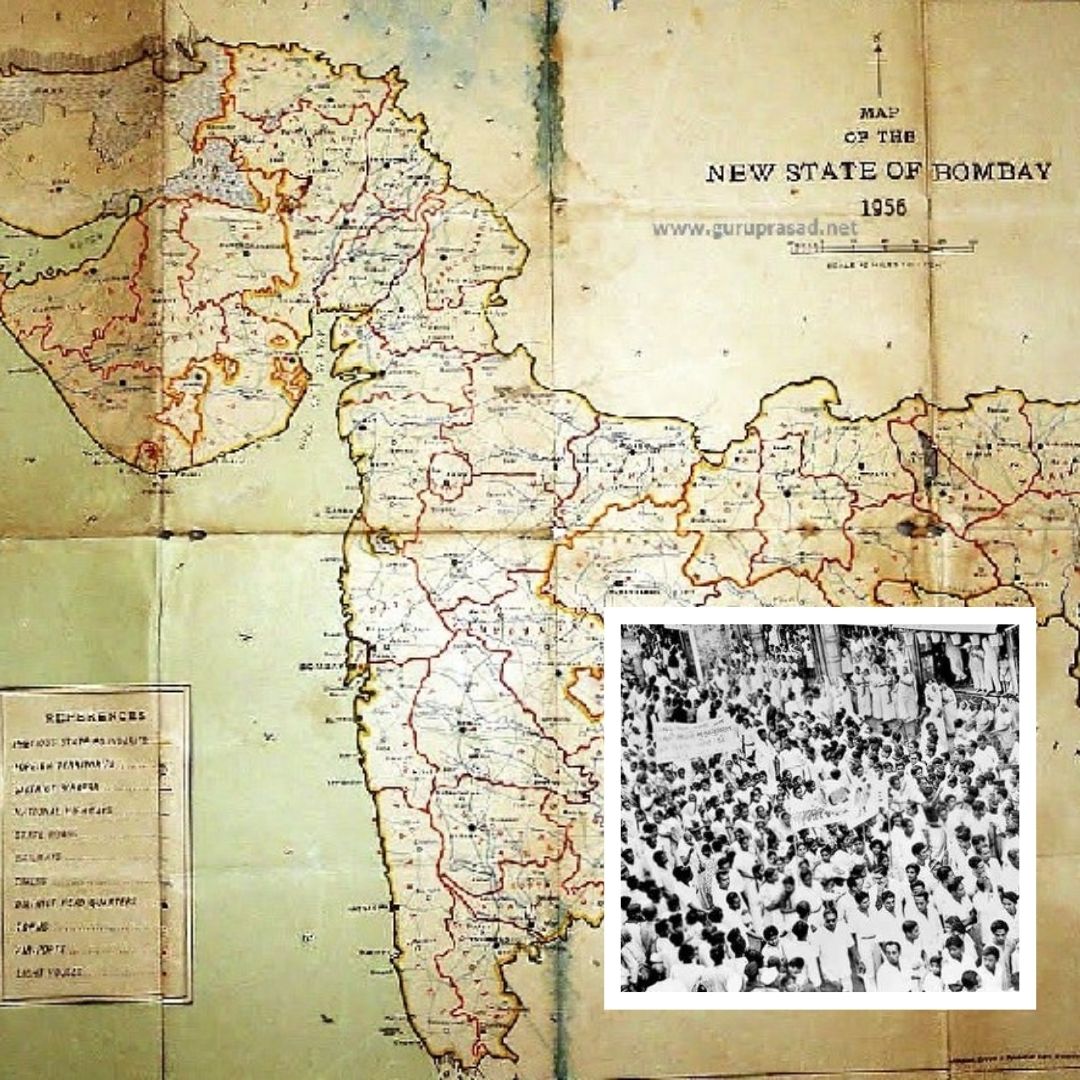Etched In History: Here's How The Erstwhile Bombay State Became Today's Maharashtra, Gujarat
Writer: Ratika Rana
Her primary objective is to inform, promote, educate and cultivate readers through writing.
Gujarat, 1 May 2022 5:23 AM GMT
Editor : Shiva Chaudhary |
A post-graduate in Journalism and Mass Communication with relevant skills, specialising in content editing & writing. I believe in the precise dissemination of information based on facts to the public.
Creatives : Ratika Rana
Her primary objective is to inform, promote, educate and cultivate readers through writing.
Since several states were divided on the basis of political and cultural feasibility, protests erupted in the erstwhile Bombay State over language, thus giving rise to Maharashtra and Gujarat on May 1, 1960.
When the British left India in 1947, the golden bird was left in shambles due to partition chaos. Since several languages are spoken across the lengths and breadths of India, the government chose to divide states based on their political and cultural feasibility. However, during the 1920s, the freedom fighters promised India that states would be reorganised if and when the British left and every language would have its province.
Therefore, the Bombay province from the British era came to be recognised as Bombay State under the State Recognition Act, 1956. However, the grouping of several vernacular languages altogether created unrest and disharmony in the newly formed state.
Bombay Reorganisation Act, 1960
When the protests erupted, there were two large groups. People who spoke Kutchi and Gujarati formed a band, while those speaking Marathi and Konkani became one. The Samyukta Maharashtra Movement and the Mahagujarat movement became the face of these demands, News18 reported.
The government of India saw the simmering protests in the state and charted out the Bombay Reorganisation Act, which the Parliament passed on May 1, 1960. Thus, two new states, Maharashtra and Gujarat, were formed in India. Nonetheless, the ruling government in the erstwhile Bombay state bore the brunt of dividing the state.
Linguistic Diversity In Two States
In Maharashtra's capital city, Mumbai, Marathi is the forerunner, with about 45 per cent of the people conversing in the language. However, a significant 20 per cent of the population in the state still speaks Gujarati. Apart from English and Hindi, Marathi and Gujarati are the two most widely spoken languages in the city of dreams.
Similarly, the census of 2011 showed that more than 9 lakh people in Gujarat spoke Marathi. Therefore, signifying the diversity and inclusivity of India's rich history and culture.
Also Read: Investment Banker Turned IAS: Abhishek Surana Left A High Paying Job For His Country
 All section
All section















